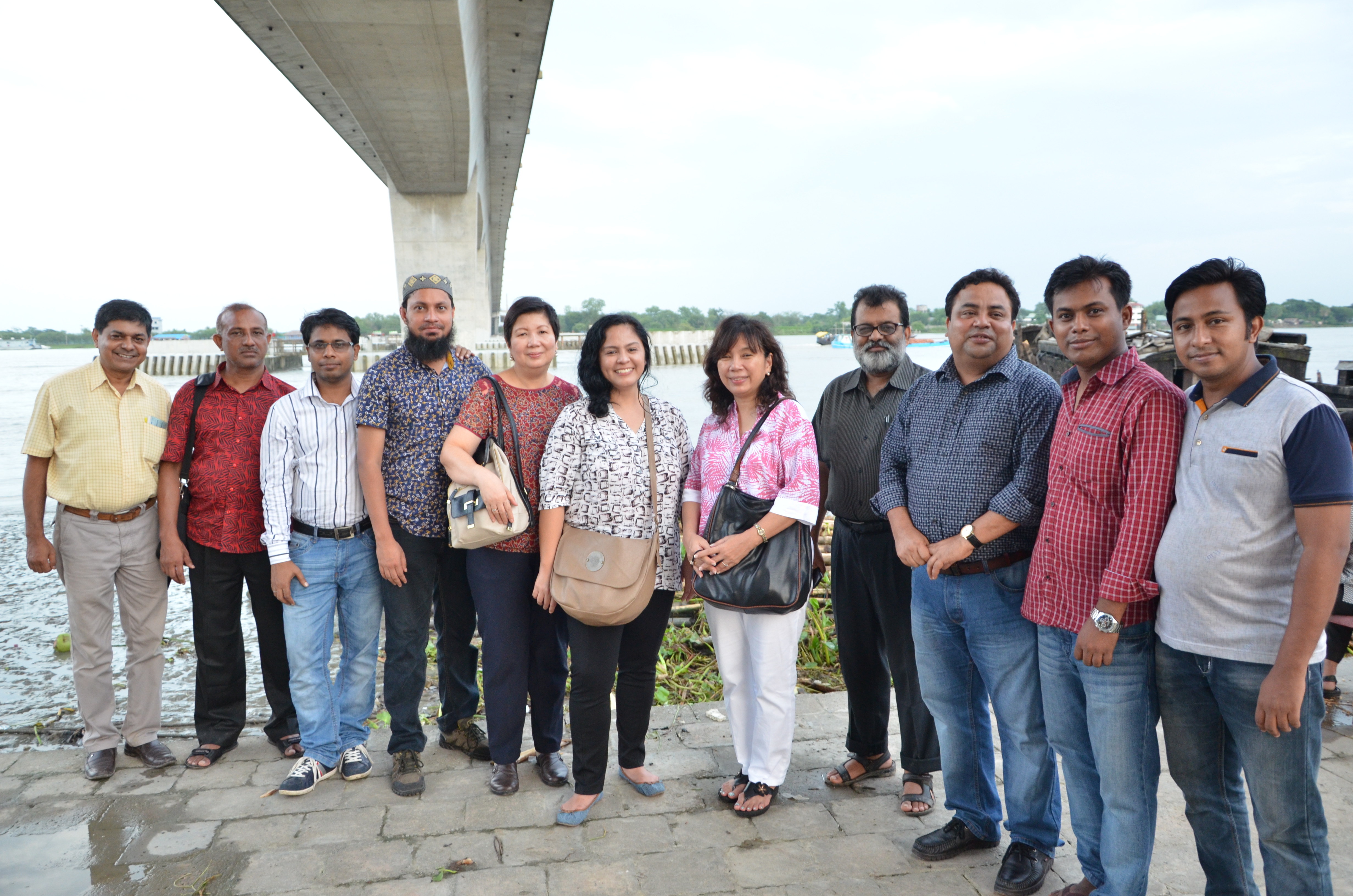 A training workshop on the “Design of Communication Strategy and Development and Production of Communication Materials” was held on September 15-17, 2015 at the CSS Ava Center located at 82 Rupsha Strand Road, Natun Bazar, Khulna 9100, Bangladesh.
A training workshop on the “Design of Communication Strategy and Development and Production of Communication Materials” was held on September 15-17, 2015 at the CSS Ava Center located at 82 Rupsha Strand Road, Natun Bazar, Khulna 9100, Bangladesh. This is a follow-up on the first training-workshop on situation analysis as the first step in the Communication for Development (ComDev). In this workshop, the participants were trained on the second and third steps of the planning process.
At the end of the workshop, the participants are expected to learn how to develop a strategic design and to develop and produce communication materials through the following learning objectives:
1. Identify and prioritize stakeholders to be addressed
2. Formulate communication or behavioral objectives
3. Select the most appropriate communication approach(es)
4. Identify key messages for each stakeholder group
5. Select media/channels and communication materials for delivering key messages
6. Develop a prototype communication material
Dr. Maria Theresa H. Velasco, dean and professor of the College of Development Communication, UP Los Banos (CDC-UPLB) and one of the RRI-CCRIP international consultants as well as Assistant Professor Hermilea Marie C. Castillo of the Department of Science Communication of CDC-UPLB served as resource persons to thirty-three participants who attended the workshop.
The three-day training workshop was delivered through lecture-discussions complemented with PowerPoint presentations as training aids. In order to assess the understanding of the participants, group work/exercises, group presentation and critiquing of outputs, as well as demonstration of techniques were also carried out.
In Day 1, Dr. Velasco gave an overview highlighting the objectives, features, and learning tools that will be discussed during the three-day workshop. She pointed out how complex communication is and that communicators should focus on delivering the key messages to its stakeholders. She also emphasized the importance of the listening skill to effective communication.
Dr. Ma. Stella C. Tirol, an international consultant and also from CDC-UPLB gave a review on the Situation Analysis (SA) process from seminar-workshop 1 as well as the content of the Situation Analysis Report.
In Day 2, CDC Assistant Professor Hermilea Marie C. Castillo discussed how to prioritize stakeholder groups and setting objectives as part of strategic design for the communication plan. She provided guiding principles in formulating objectives based on the knowledge, attitude, skills, and practice (KASP) of the community and provided examples. Moreover, she also discussed how to develop the communication materials followed by design for effective materials. She imparted tips on how to produce brochures/leaflets, posters, primers, comics, and factsheets. She also talked about audio and audiovisual materials with emphasis on scriptwriting and different types of treatment. She concluded with the importance, components, and steps in pretesting communication materials.
In Day 3, aside from the group exercise on communication production, Dr. Tirol presented a synthesis of the training-workshop.
In closing, Mr. Saiffudin Sabuj, RRI-CCRIP Project National Consultant, updated the group on the progress of community radio broadcasting activities of the project. The community radio program on climate change and related activities was dubbed as “Voice of Coastal People”. He shared that the recently completed radio drama production training for four participating radio stations eagerly await for the scheduled broadcasting of the program.
Meanwhile, CCRIP Project Director Lufthur Rahman informed the participants that the Rural Radio Initiatives (RRI) is a pilot project to develop communication strategy and plan as well as communication materials in support of CCRIP and realted areas.
The RRI is being funded by IFAD through CCRIP and AIS-MoA.